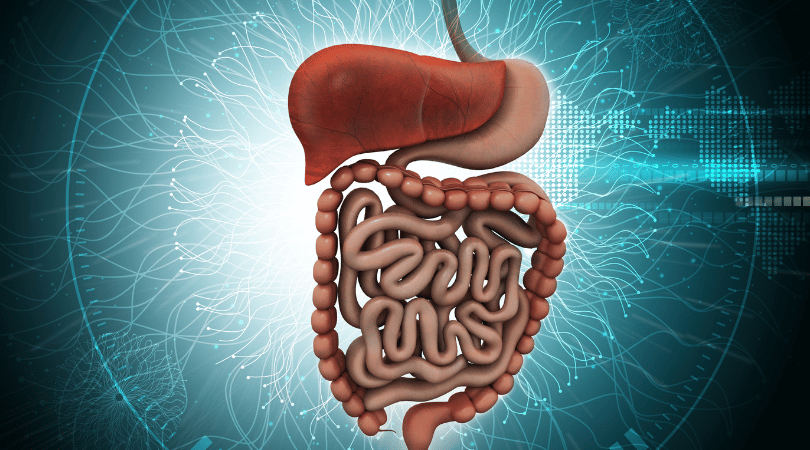Good digestion is essential for our overall health. It helps us absorb nutrients from the food we eat and gets rid of waste products. There are a lot of factors that contribute to good digestion, including the type of food we eat. That’s why we’ve put together a list of the top 10 best foods for digestion. These foods are not only packed with nutrients that help promote good digestion, but they’re also easy to digest. So if you’re looking for foods that will help you digest better, look no further!
Introducing the top 10 best foods for digestion
There are many different types of food that can help with digestion, but some are better than others. Here are the top 10 best foods for digestion:
-
- Yogurt: yogurt contains live and active cultures that can help improve gut health. It’s also a good source of protein and calcium.
-
- Sauerkraut: sauerkraut is fermented cabbage, and like other fermented foods, it’s a good source of probiotics. Probiotics can help improve gut health and digestion.
-
- Miso soup: miso is a fermented soybean paste, and miso soup is a traditional Japanese dish that’s full of probiotics.
- Kimchi: kimchi is a Korean dish made from fermented cabbage, radishes, and other vegetables. Like sauerkraut, it’s full of probiotics that can help improve gut health and digestion.
- Tempeh: tempeh is a fermented soybean product that’s popular in Indonesia. Like miso soup, it’s full of probiotics that can help improve gut health and digestion.
- Kombucha: kombucha is a fermented tea that’s rich in probiotics and enzymes that can help with digestion.
- Pickled vegetables: pickled vegetables (such as cucumbers, onions, or peppers) are another good source of probiotics that can help with gut health and digestion.
Why a healthy digestive system is important
-
- A healthy digestive system is important for many reasons. It helps your body to absorb nutrients from the food you eat, gets rid of waste products, and protects you from harmful bacteria and toxins.A healthy digestive system is also important for maintaining a healthy weight. When your digestive system is working properly, it helps to regulate your appetite and metabolism.
- A healthy digestive system can also help to prevent some chronic diseases, such as heart disease, diabetes, and inflammatory bowel disease.
- Finally, a healthy digestive system is essential for overall good health. When your digestive system is not working properly, it can impact every other system in your body.
What are some common digestive problems?
There are a number of common digestive problems that can affect individuals. These include heartburn, indigestion, irritable bowel syndrome (IBS), and acid reflux. Heartburn is a burning sensation in the chest that is often caused by stomach acid rising up into the esophagus. Indigestion is a general term for discomfort or pain in the stomach after eating. IBS is a chronic condition that can cause abdominal pain, bloating, and changes in bowel habits. Acid reflux occurs when stomach acid flows back up into the esophagus, causing irritation and discomfort.
There are a number of ways to help alleviate or prevent these digestive problems. Avoiding trigger foods, such as spicy or fatty foods, can help reduce heartburn and indigestion. Eating smaller meals more frequently can also be helpful in preventing indigestion. Drinking plenty of fluids, especially water, can help keep the digestive system hydrated and working properly. Exercising regularly can also help improve digestion by keeping things moving through the system. If you suffer from any of these digestive problems on a regular basis, it’s important to talk to your doctor to find out what treatment options are available to you.
How can diet help improve digestion?
Diet plays an important role in digestion. The type of food you eat can affect the way your body digests it. There are certain foods that can help improve digestion and make it easier for your body to break down and absorb nutrients.
Some good examples of foods that can help improve digestion include:
-Fruits and vegetables that are high in fiber such as oranges, bananas, peas, and broccoli. Fiber helps add bulk to stools and makes them softer and easier to pass.
-Whole grains like oatmeal, whole wheat bread, and brown rice. These contain complex carbohydrates which take longer to break down and therefore help to regulate bowel movements.
-Probiotic foods such as yogurt, sauerkraut, and kimchi. Probiotics contain live bacteria that help promote a healthy gut flora balance which is necessary for proper digestion.
-Fatty fish such as salmon, mackerel, sardines, and herring. These are a good source of omega-3 fatty acids which have anti-inflammatory properties and can help reduce inflammation in the digestive tract.
The top 10 best foods for digestion, ranked
There are a lot of different foods that can help with digestion, but some are better than others. Here is a list of the top 10 best foods for digestion, ranked:
-
- Water: This should be no surprise, as water is essential for many bodily functions, including digestion. It helps to keep things moving through your digestive system and prevents constipation.
- Fiber-rich foods: Foods that are high in fiber help to bulk up stool and make it easier to pass through the digestive system. Good sources of fiber include fruits, vegetables, whole grains, and legumes.
- Probiotic-rich foods: Probiotics are good bacteria that live in your gut and help with digestion. They can be found in fermented foods like yogurt and sauerkraut, as well as in supplements.
- Lean protein: Protein is necessary for repairing the cells in your digestive tract and keeping things moving along smoothly. Lean protein sources include chicken, fish, tofu, and legumes.
- Healthy fats: fats help to lubricate the digestive tract and make it easier for nutrients to be absorbed. healthy fat sources include avocados, olive oil, nuts, and seeds.
Some final tips for improving digestion
-Avoid processed and sugary food as they can upset the delicate balance of the gut.
-Include plenty of fibre-rich foods in your diet as they help to keep things moving along smoothly.
-Stay hydrated by sipping on water throughout the day.
-Try to relax and de-stress as much as possible as stress can have a negative impact on gut health.s as these can upset the delicate balance of your gut flora. Instead, focus on eating plenty of fresh fruits, vegetables, and whole grains.
-Make sure to drink plenty of fluids throughout the day, especially water, to keep your digestive system moving smoothly.
-If you’re feeling constipated, try incorporating some natural laxatives into your diet such as prunes, flaxseeds, or psyllium husk.
-And finally, don’t forget to exercise! Regular physical activity helps to promote a healthy digestive system.
-
- Eat plenty of fibre-rich foods:
Fibre is an essential nutrient for keeping the digestive system healthy and functioning properly. It helps to add bulk to the stool and keeps things moving along smoothly. Good sources of fibre include fruits, vegetables, whole grains, and legumes.
-
- Stay hydrated:
It’s important to stay hydrated by sipping on water throughout the day. This will help to keep things moving along smoothly and prevent constipation.
-
- Incorporate natural laxatives into your diet:
If you’re struggling with constipation, try incorporating some natural laxatives into your diet such as prunes, flaxseeds, or psyllium husk. These can help to get things moving along more smoothly.
-
- Exercise regularly:
Regular physical activity helps to promote a healthy digestive system by keeping things moving along smoothly.
-
- Relax and de-stress:
Stress can have a negative impact on gut health, so it’s important to try to relax and de-stress as much as possible.


